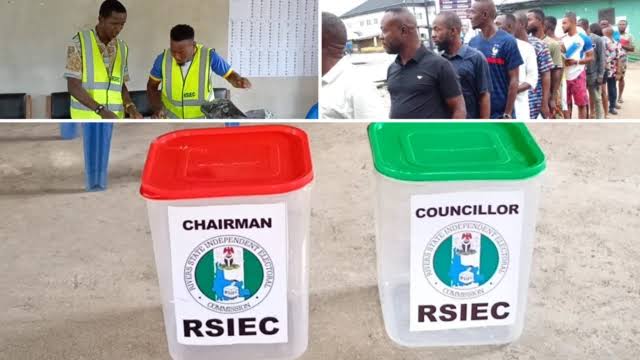
The Executive Director of the Electoral College of Nigeria, Kunle Lawal, has criticised the conduct of the local government elections in Rivers State, pointing to the declaration of emergency rule in the state.
Lawal made the remarks on Saturday as residents of the oil-rich coastal state went to the polls to elect chairpersons and councillors across its 23 local government areas.
“I don’t see democracy in someone that was appointed, creating the elected. The elected is always supposed to precede the appointed,” He said.
Lawal argued that the suspension of “democratic structures” by the president’s declaration of a state of emergency raises a mistrust about the conduct of the local government elections.
“Now, Rivers is under an emergency rule prepared by the president. Section 305 clearly states that democratic structures are suspended indefinitely.
“In cases where it’s reported in Plateau, and Adamawa, I remember, local government elections were not held because it was preempting or proceeding or during an emergency or certain democratic structures were put in place,” Lawal, who joined in from the Lekki Area of Lagos State, said.
“River State usually has one of the most volatile local government elections in Nigeria. Now with the sole administrator and the state electoral commissioner being appointed by the sole administrator, who apparently isn’t from Rivers State.
“There is a lot of conversation around the practicality of these local government elections within political parties and River State indigenes. These conversations have led to quite a mistrust.”
He noted that the situation would likely affect voter turnout in the local government elections.
“Ordinarily, less than 6.5 per cent of the voting population participates in local government elections in Rivers State,” Lawal said on a weekend breakfast show.
“With the current challenges surrounding the process, turnout may be even lower. My projection is between 4.5 and 5 per cent participation,” he added.
